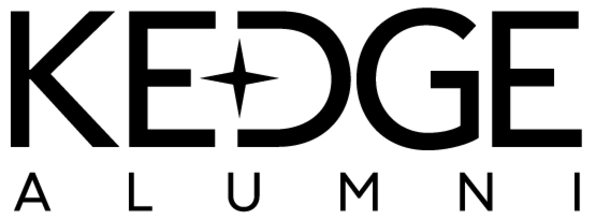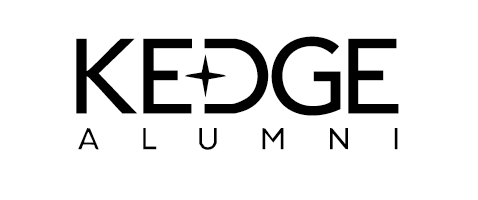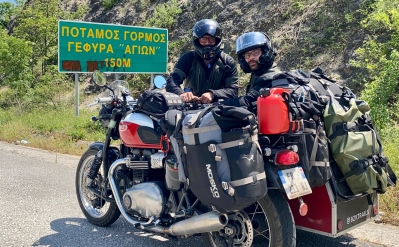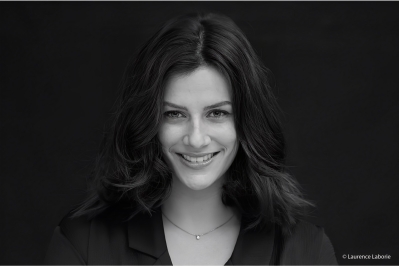News
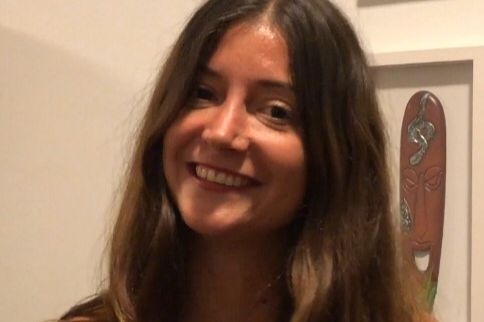
Giovanna, a KEDGE Graduate Living in São Paulo, Meets the KAS Students
The five students from the “KEDGE Alumni Success” pro-act are currently in South America, meeting with our alumni.
Can you tell us about your academic background and your studies at KEDGE? In what context did you study there?
My story is a bit unique—I was born in Brazil, so I have dual nationality! I moved to Bordeaux at the age of 8 and followed a traditional academic path.
I’ve always been drawn to marketing and communication. At KEDGE, I joined the EBP International program, which allowed me to spend 1.5 years in Hull and 6 months in Madrid for an internship at IBERIA. It was during that internship that I felt the desire to return to Brazil to live and work. For my final internship, I worked as a communications assistant in the cultural department at FNAC, which really confirmed my passion for working in communication.
🎬 Fast & Curious 🎬
Meet Giovanna this week, Event Coordinator in the Food Industry, and an expatriate in São Paulo 🇧🇷. Her full interview is coming soon—until then, enjoy this video preview!
Published by KAS – KEDGE Alumni Success on Saturday, May 4, 2019
Why did you decide to move to São Paulo? Was it a personal desire or an opportunity you seized?
After graduating, I took the leap and moved back to Brazil—without a job. At first, it was a bit complicated due to my status as a Franco-Brazilian and not a formal expatriate. The salaries offered were local—around 2,000 Reals (less than €500).
I found my first job in real estate, which I kept for a year, but I wasn’t very fulfilled. Then I applied through the Franco-Brazilian Chamber of Commerce for a position as an Event Coordinator in the food industry, based in São Paulo. Ideally, I would have preferred to stay in Rio, but I needed to work—so I accepted the offer and moved to São Paulo.
I’m still with the same group today, working at CAP Amazone, but due to the country’s current challenges and limited career growth, I’ll be returning to France in two months.
I also started a small side business called Tatitude, offering temporary tattoos. It did well at first, and I was able to grow it locally. But Brazil is very trend-driven, and my business slowed down quickly. Plus, Chinese companies with far more resources entered the market, which was a major obstacle.
What differences do you notice in the way people work between Brazil and France?
It’s completely different in many ways! (laughs) First, relationships are much more cordial and communication is far less formal. Whether you’re speaking to a colleague, a manager, or even a client, messages are casual. Emails are rarely used—WhatsApp is the main communication tool.
São Paulo also has its own pace—it’s much more intense than Rio, for example.
What are your plans for the future? Where do you see yourself in 5 or 10 years?
I’m leaving Brazil in two months to return to France.
First, I want to spend time with my loved ones. Honestly, I don’t know what my next job will be—I’ll start looking once I’m back.
That said, I do have a few ideas! I still want to work in event planning, but in sectors completely different from the one I’m in now. Ideally, I’d like my work to be aligned with strong ethical values—perhaps in vegetarianism or algae, which I believe are sectors with real potential.
How did KEDGE help you when you moved to Brazil (training, network, internships, work-study, VIE…)?
To be honest, my boss is French—so he was familiar with the name KEDGE. The value of the diploma and the school’s reputation were definitely major assets when I was hired.
The school’s network also played a key role in my early career. Some of the people I met at KEDGE and during my international experiences were already in Brazil and helped me when I arrived. Having contacts here before moving made integration much easier. You feel less alone, and those people become your anchors. Without the EBP program, I wouldn’t have the network I have today in São Paulo.
Did you have any apprehensions before moving?
There’s a lot of talk about safety here, and the media—both local and international—play a big role in that. It’s true that my mom wasn’t thrilled when she found out I was moving back (laughs). A lot of the concerns about safety are exaggerated. I wasn’t particularly worried about violence.
The second common concern is the language barrier. But since I was born here and already spoke Portuguese, that wasn’t an issue for me.
What advice would you give to a recent KEDGE graduate who’s considering starting their career in Latin America?
Brazil is a country full of opportunities. I think someone who arrives with a solid business plan and a well-thought-out project has a good chance of succeeding. The only caveat, as I mentioned earlier, is that Brazilians are very trend-sensitive and can lose interest quickly.
It’s really important to surround yourself with the right people and make an effort to build genuine relationships. In Brazil, colleagues are much more than just work partners. The human aspect is something you absolutely shouldn’t overlook.
Which sectors are thriving in this country, in your opinion? Are there opportunities for young graduates?
I’ll mention the sectors I know and where I see real opportunities. The wine industry, and more broadly alcohol, is currently booming. Brazilians are placing more and more value on the variety of drinks they can enjoy. Wine isn’t as culturally embedded as it is in France, but that’s exactly why there’s room to grow.
Also, the uberization of society, which began in 2014, has created many jobs. Delivery services and apps are still emerging. In fact, Uber is used more in Brazil than in France, due to the relatively low cost of services.
One last point that applies to all sectors: Brazilians perceive imported products as high-quality. Unlike in France, where “Made in France” is highly valued, in Brazil, foreign products are seen as superior.
What have you found here that you wouldn’t find in France?
Samba! (laughs) More seriously, it’s really the overall environment that makes life here enjoyable. Beyond the professional world, Brazilians tend to take things with more perspective and generally feel less pressure, which makes everyday life more pleasant.
So it’s not one specific thing—it’s really the whole package. Life here is enjoyable on every level: personal, professional, and even the climate.
What is your role as an Alumni? You graduated from KEDGE and are now part of our global network.
I wouldn’t say I have a major role—I’m not a chapter leader or in charge of anything—but it’s truly enriching to feel part of a community.
More concretely, I always smile when I receive invitations to the afterworks organized here in São Paulo. I attend every time with great pleasure. It’s a great opportunity to connect and maintain relationships with people who, depending on their generation, received more or less the same education.
Interview conducted in São Paulo by the five students of the KEDGE Alumni Success pro-act.
